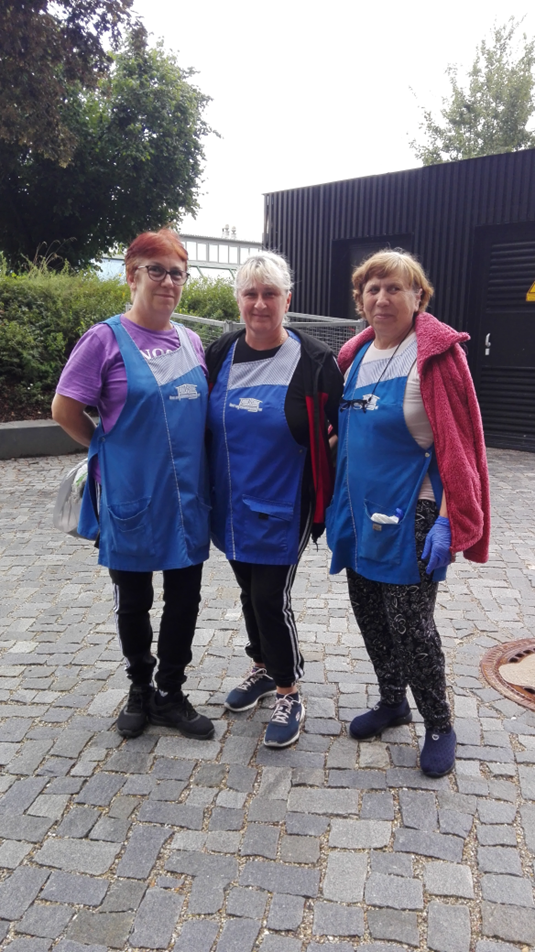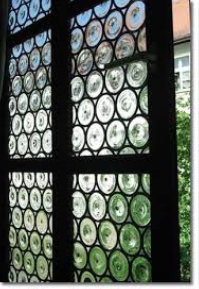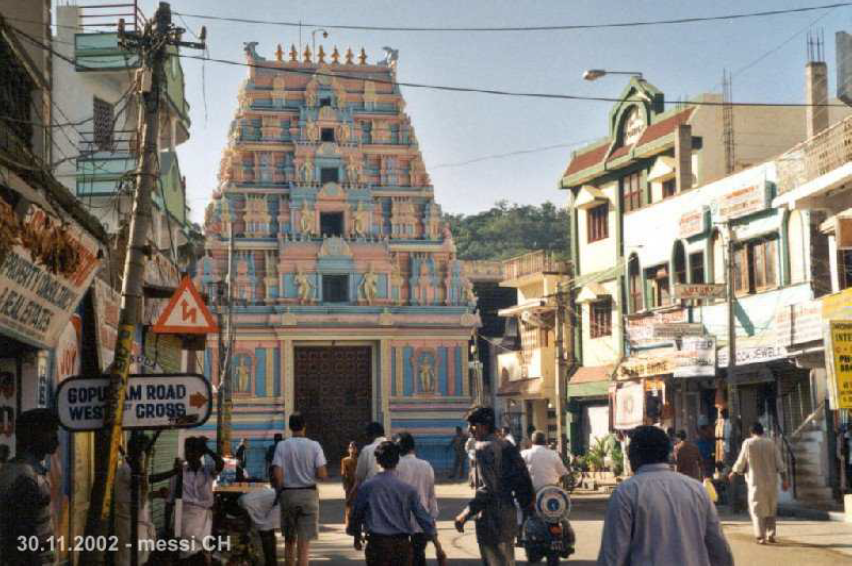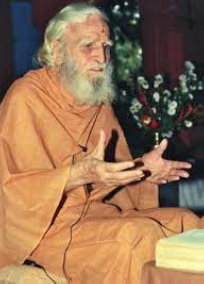Several people inspired me to think about cleaning – a teacher from my youth who said the following: “Correcting is the activity I like least of all. I prefer cleaning even more.”
Then a very interesting woman, Linda Thomas, who sees cleaning as a meaningful and valuable activity and has made a career out of it. She sees cleaning as a nurturing activity that preserves, connects and elevates matter and people. Her joy in sharing her true-to-life philosophy on cleaning is infectious. https://lindathomas.org

And finally the friendly women from Romania who I see evening
after evening in a school and who put all the rooms back into
an orderly, clean and fragrant state.
Seriously, what would our society look like if there were no people to clean, tidy, mop, vacuum, sweep and take away the garbage? Every hospital, old people’s home, office, town hall, guest house, swimming pool and private home would be inaccessible and unusable and would lose their purpose. For this reason, it is only natural to have a few thoughts about cleaning.
Etymologically, the word “putzen” comes from “Butzen” – we know the apple “Butzen”. Butzenscheiben, small, round panes of glass set in lead with a hump in the middle, the “Butzen”, are also still familiar to some.

They were mainly used as window panes in simple town houses from the 14th to the 16th century.
Butzen, on the other hand, is related to the term “Batzen”, in the broad sense “putzen” means to free from Batzen of any kind.
A room that is free of dirt, that is orderly, where everything is in its place, usually has a brightening effect on our minds. We like to enter it. The subject of cleaning is certainly worthy of appreciation in sophisticated films. One example of this is the recently released film by Wim Wenders “Perfect days”, a story about a toilet cleaner from Tokyo who carries out his task conscientiously and with a sense of honor.
I once noticed such an attitude at an Indian train station, which was spotlessly clean. The cleaning lady walked through the station concourse in her sari like a queen and ensured that everything was spotlessly clean. And there are other observations that a traveler to India can make: For a European, the colorful impressions of a jumble of people, cars, bikes and animals on the streets, the honking and ringing and also, unfortunately, garbage on the streets are an unfamiliar experience. If you travel by bus or train close to an ashram, a place or a community that is the place of work of a spiritual teacher, the whole environment shines more cleanly. I experienced this impressively in Puttaparthi, the ashram of Sathya Sai Baba (1926 – 2011) and also in the Shantivanam Ashram in Tamil Nadu, South India, which was brought back to life by the former Benedictine abbot Bede Griffiths (1906 – 1993) with a well-founded interreligious exchange.

The hospital in Puttaparthi

Entrance to Sai Baba’s ashram
Here are some photos from the Shantivanam Ashram, which was given a deeply Christian orientation by Bede Griffiths, and in which all world religions were honored. A book by Bede Griffiths bears the title “Indivisible Spirit.”


The library of the Shantivanam Ashram

Simple and harmonious ashram buildings
It is the aesthetics, tranquillity and order in such places that delight and pacify all residents and visitors. This order is created by many hard-working hands day after day.
Goethe, whose workrooms can be visited in Weimar today, is also known to have created and maintained order around himself in order to be able to devote himself to his very fruitful activity of thinking.
Some of us may have already noticed that when we are depressed, the desire to clean usually disappears. If you make an effort to do it anyway, it’s already a small step back in life. Cleaning and tidying has an organizing and enlightening effect.
Now I would like to introduce a spiritual thought about cleaning. Heinz Grill, spiritual teacher and author, has presented it in a brochure entitled “Material perception of value and moral perfection in the soul”.
Among other things, he writes:
…. “What is a sense of value in the earthly world, for example? In the earthly world we would classify such a thing, to emphasize this simple image, a job of cleaning as low. The term ‘cleaning lady’ doesn’t exactly have a very high status in society. If someone today has to enter their profession on a piece of paper and they have to write down that they are a street cleaner or the woman writes down cleaning lady, then they will certainly not have a glorious feeling that this profession represents something dignified and orderly in contrast to someone who writes down doctor of chemistry or something else. Is it really the case that everything that has to do with cleaning, cleaning work, really represents the lowest work? This is how personal values are shaped in the earthly…. “
“But let us now look at another world. If we look at a spiritual world, we must realize, as Sai Baba also says, that there is only one unity, that in this world value categories can suddenly no longer be measured by social statutes. The value category suddenly takes on the expression of the wisdom and love that the individual has developed in it. Thus it may be that a menial task, carried out with wisdom, leads to a noble gift in the spiritual world. It is not the earthly order that is decisive for the spiritual world, but what a person learns to put into his vocation….”
Heinz Grill has another fascinating thought about dust. It is precisely the preoccupation with dust and the dusty that gives those involved in the cleaning activity a quiet reminder, even if it does not come to consciousness, that we humans too will one day become this matter with our bodies. This is a very unusual thought. But it is nevertheless understandable, because in every profession I am in contact with a certain kind of matter. As a florist with the world of flowers and blossoms, as a chemist with chemical substances and processes and as a cleaner with the dust, dirt and also the light and shine that are brought back to light through cleaning.
These thoughts can awaken an awareness of the fact that every activity, even if we only see it from a purely material point of view in this world, has a much greater significance in the spiritual world. Filled with meaning and content, it becomes not only a gift and a present for the earthly world, but also for the soul and spiritual world. Spirituality can then be integrated into everyday life and does not remain a distant hope striving and fleeing into the cosmic expanses. These thoughts could also be a stimulus to look at your own profession or hobby with new eyes and to develop a new, meaningful relationship with it.
And that is what I wish for all cleaning ladies and cleaning staff, that their value is seen much more by the outside world and that they can experience themselves in this value of their profession. I would actually say – they are our bringers of light in the truest sense of the word.


0 Comments